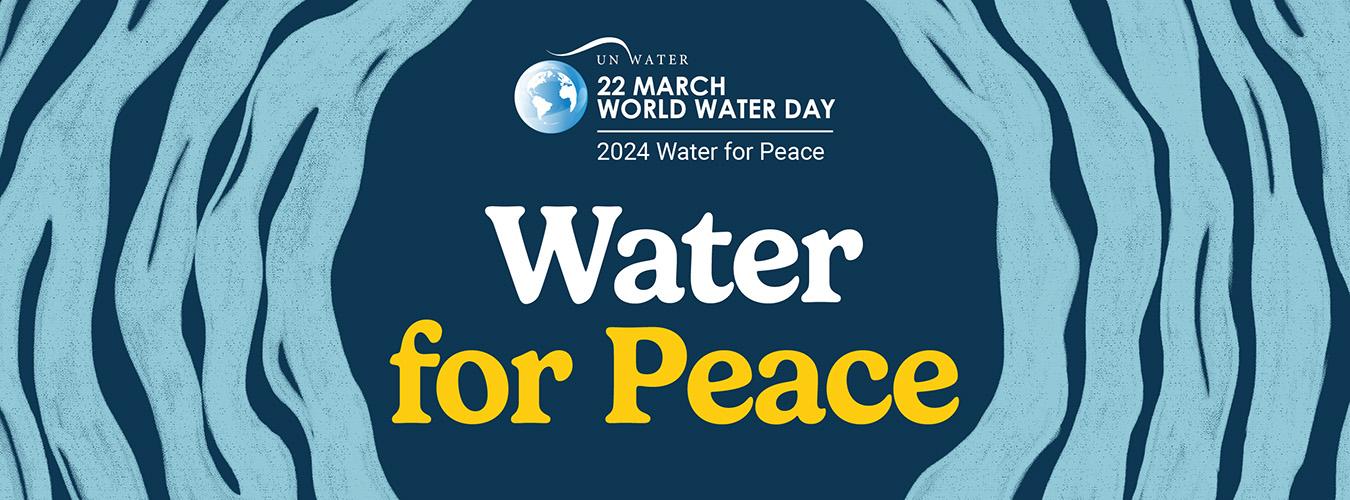Water is an essential part of human existence.
World Water Day is an event that encourages people to show support for the campaign for clean water sources, by raising awareness about water issues and advocating for better management of water resources. It started in 1993 by UN-Water and has gained worldwide recognition, with millions of people participating annually, including on social media platforms like Facebook.Each year, UN-Water selects new themes and campaigns that focus on pressing water issues. UN-Water is an inter-agency unit of the United Nations working on all issues related to freshwater and sanitation.
Water and Global Challenges
World Water Day continues to address the global challenges related to water, such as access to safe drinking water, sanitation, and the impact of climate change on water resources.

Access to clean water is a lifeline for many communities, providing essential hydration and improving overall health and well-being. These children are filling a container at a communal water tap, a crucial resource in areas where water is scarce.
The event serves as a reminder of our collective responsibility to provide sustainable water solutions for billions of people around the world. The themes selected by UN-Water often focus on practices and policies that promote efficient use of water and energy, reflecting the close relationship between these resources.
The Water Crisis Today
Today, the global water crisis remains a critical issue. According to the latest data from the UN, around 2 billion people still lack access to safely managed drinking water services, and 3.6 billion people lack access to safely managed sanitation services.
Climate change, population growth, and pollution continue to put pressure on our water resources, making events like World Water Day crucial for driving global action and awareness.
Sustainable Development Goals
World Water Day now aligns with the Sustainable Development Goals (SDGs), particularly Goal 6: "Ensure availability and sustainable management of water and sanitation for all." These goals aim to address the global water challenges by 2030, building on the progress made since the Millennium Development Goals. Efforts are being made worldwide to ensure that clean water and sanitation are accessible to everyone, but there is still much work to be done.
World Water Day Themes Over the Years
Every year, World Water Day has a new theme that highlights different aspects of global water challenges. These themes focus on critical issues and help to draw attention to different facets of water management, sustainability, and access. Below is a list of themes from past years and upcoming themes according to UN-Water:
| Year | Theme |
|---|---|
| 2024 | Leveraging Water for Peace |
| 2023 | Accelerating Change |
| 2022 | Groundwater: Making the Invisible Visible |
| 2021 | Valuing Water |
| 2020 | Water and Climate Change |
| 2019 | Leaving No One Behind |
| 2018 | Nature for Water |
| 2017 | Wastewater |
| 2016 | Water and Jobs |
| 2015 | Water and Sustainable Development |
| 2014 | Water and Energy |
| 2013 | Water Cooperation |
| 2012 | Water and Food Security |
| 2011 | Water for Cities |
| 2010 | Clean Water for a Healthy World |
| 2009 | Transboundary Waters |
| 2008 | Sanitation |
| 2007 | Coping with Water Scarcity |
| 2006 | Water and Culture |
| 2005 | Water for Life |
| 2004 | Water and Disasters |
| 2003 | Water for the Future |
| 2002 | Water for Development |
| 2001 | Water and Health |
| 2000 | Water for the 21st Century |
| 1999 | Everyone Lives Downstream |
| 1998 | Groundwater – The Invisible Resource |
| 1997 | The World's Water: Is There Enough? |
| 1996 | Water for Thirsty Cities |
| 1995 | Women and Water |
| 1994 | Caring for Our Water Resources is Everyone's Business |
The upcoming World Water Day themes continue to address key global water challenges. In 2025, the focus will be on Preserving Glaciers, aligning with the International Year of Glacial Preservation.
In 2026, the theme will concentrate on the critical role of Water and Sanitation in Gender Equality.
Looking further ahead, 2027 will explore the important connections between Water, Sanitation, and Health, highlighting the need for clean water and sanitation in maintaining public health worldwide.
How You Can Help
There are many ways you can contribute to this cause, even from your home. Simple actions like reducing water waste, supporting water conservation projects, and spreading awareness about the importance of clean water can make a big difference. On World Water Day, join the global conversation on social media, participate in local events, or organize a water-saving initiative in your community.
To learn more about World Water Day and how you can take part, visit the official World Water Day website.








